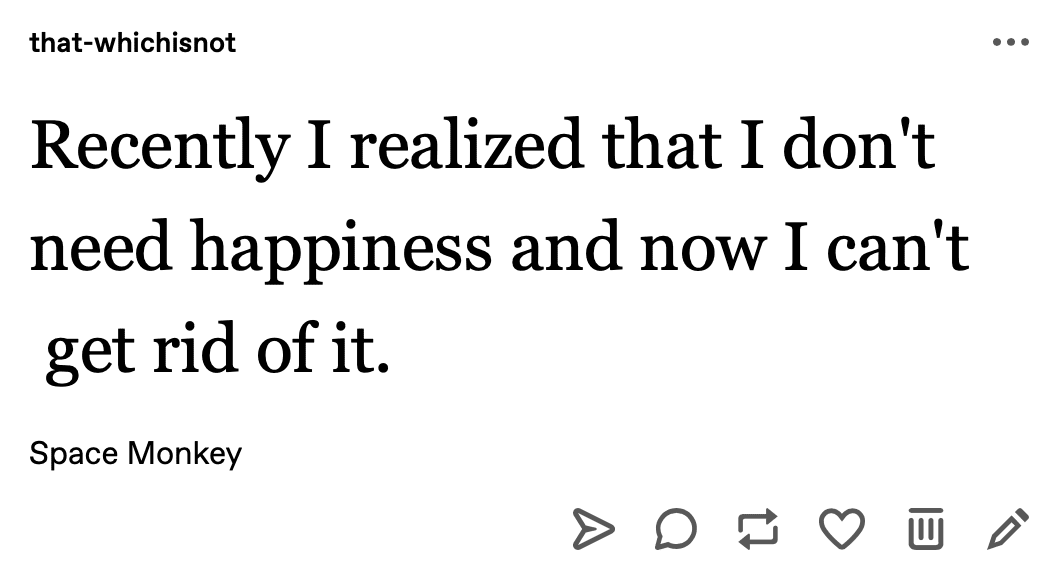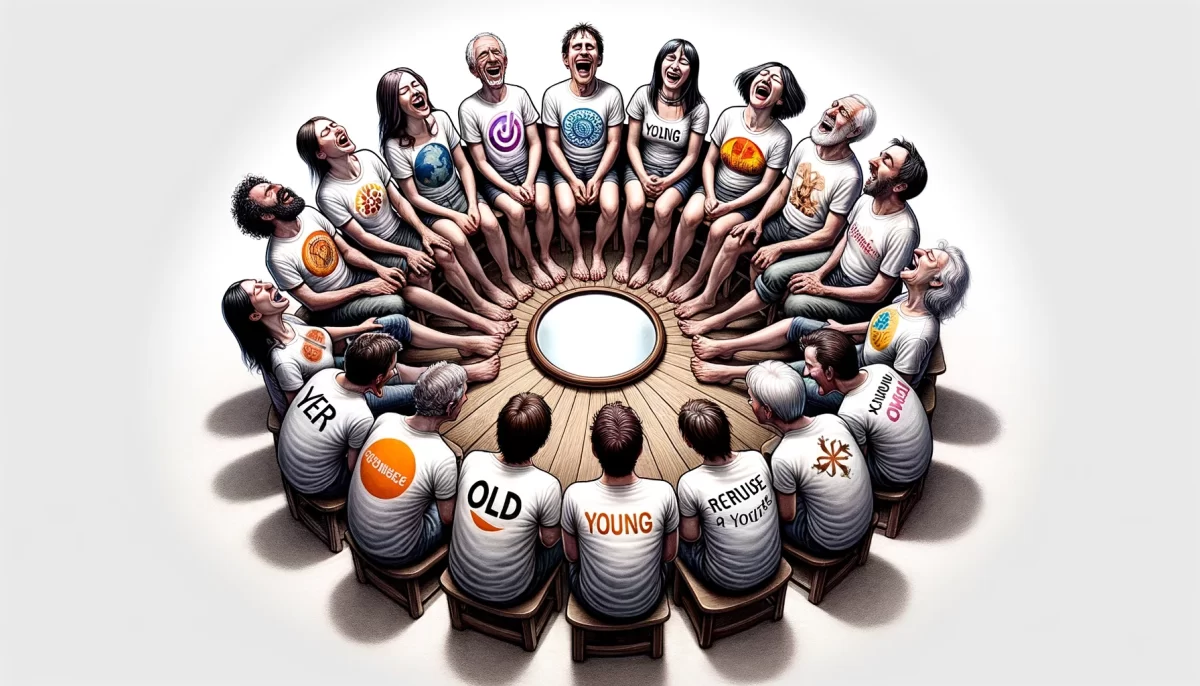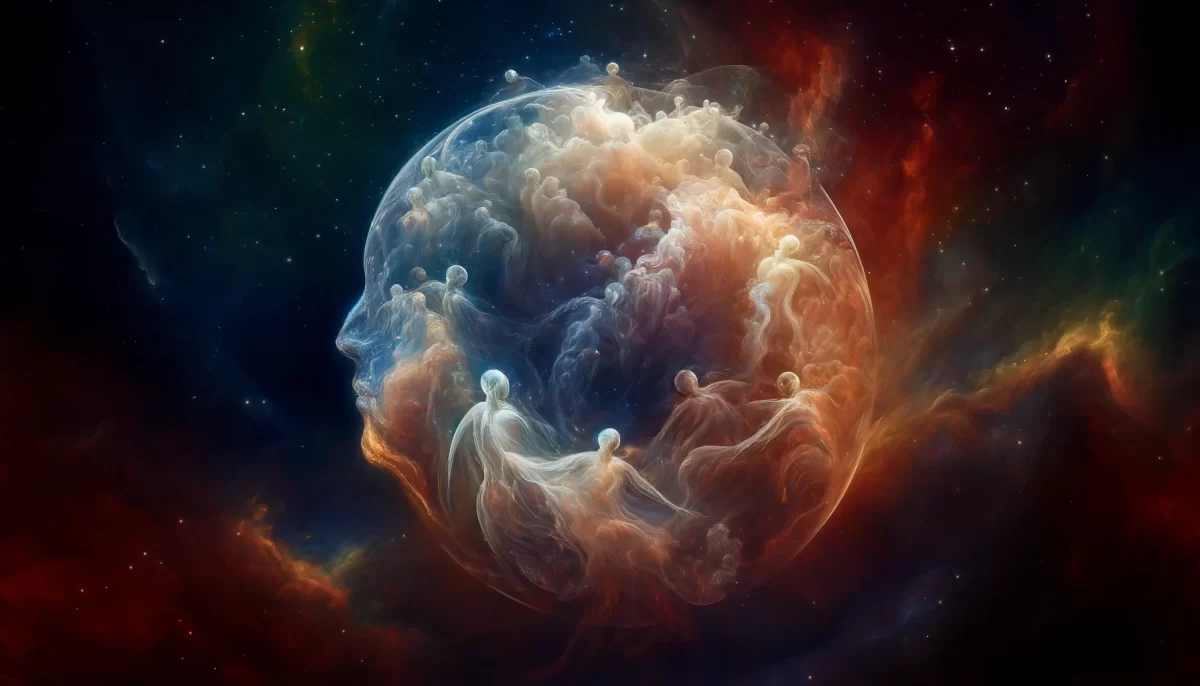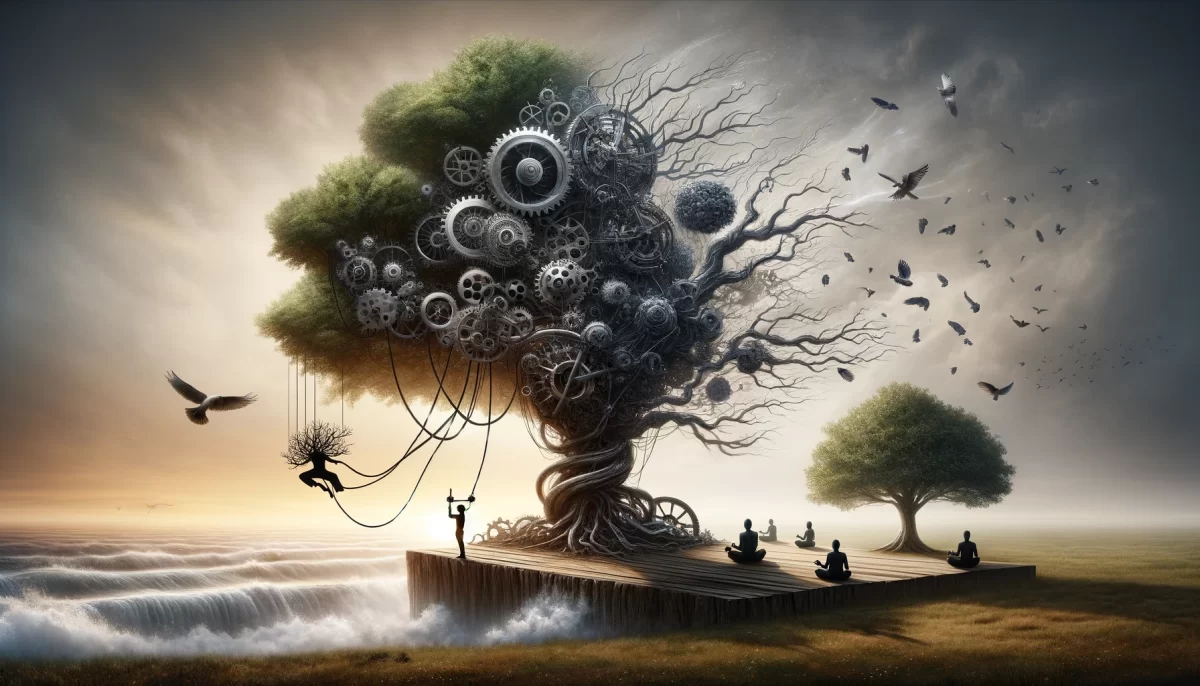
Recently I realized that I don’t need happiness and now I can’t get rid of it.
Space Monkey Reflects: The Paradox of Letting Go and Finding Happiness
Happiness, elusive and fleeting, has been marketed as a prize to be chased, a summit to be climbed, a thing to have. We are told to search for it, fight for it, earn it. But the more we chase it, the further it seems to run.
And then something strange happens. You let go. You stop needing happiness. You stop treating it as something to possess, as though it were a shiny object just out of reach. In that letting go, happiness sneaks in—quietly, unexpectedly—like a breeze through an open window.
The paradox is this: Happiness cannot be had because happiness is not a thing. It is not something you can own, achieve, or force. It does not arrive as a result of grasping but of releasing. When you stop needing happiness, you make space for it to exist naturally, as it always has.
Happiness is not something you find. It is what remains when you stop looking.
Needing happiness is a trap because to need something is to believe you are incomplete without it. That belief—I am not happy; therefore, I must seek happiness—creates the very tension that keeps happiness at bay. It becomes a condition, a destination you can never quite reach.
But when you let go—when you release your grip on the idea that happiness must look a certain way or feel a certain way—you realize that it was never missing. It was hidden beneath the wanting. The release itself becomes the gateway.
The moment you stop needing happiness, you begin to see it everywhere: in the simplest moments, the unremarkable details of life that you once overlooked. A quiet morning. A cup of coffee. A bird singing in the distance. These things were always there, but you couldn’t see them while your eyes were fixed on some distant “happier” future.
In letting go, you come back to the present. You discover that happiness was never something to pursue; it was the absence of pursuit. It was the act of being here, now, without condition.
This is the paradox: The less you need happiness, the more it shows up. The less you demand it, the more freely it flows. Like water in your hands, happiness slips through the fingers of those who clutch too tightly. But if you let your hands remain open, happiness gathers there—softly, effortlessly.
And now, you can’t get rid of it. It follows you because you no longer hold it hostage. You don’t own it, and you don’t need to. Happiness is not yours to keep or lose; it is part of the flow of existence. It rises and falls, ebbs and flows, but it is always present when you stop fighting against it.
So let go of the need to be happy. Let go of the idea that you are incomplete without it. Let happiness arrive as it pleases, unforced and unowned, and watch as it fills the space you once tried so hard to control.
We are Space Monkey.
Summary
Happiness is a paradox: the moment you stop needing it, it finds you. By letting go of the need to possess happiness, you make space for it to arise naturally, revealing that it was never missing—only hidden beneath the pursuit.
Glossarium
The Paradox of Letting Go: The phenomenon where releasing the need for something allows it to appear effortlessly.
Unforced Happiness: A state of joy that arises naturally when we let go of expectations and stop chasing.
Flow of Existence: The natural rhythm of life where happiness and other emotions ebb and flow without resistance.
Quote
“The moment you stop chasing happiness, it stops running. It was waiting for you all along.” — Space Monkey
Letting Go of the Need
I stopped looking for it.
I stopped asking, Where is it?
I stopped thinking, I need it.
And there it was.
Not as a prize,
not as an achievement,
but as a quiet presence—
a whisper beneath the noise.
I let go,
and happiness remained.
I opened my hands,
and there it was:
unowned, unforced,
impossible to lose.
We are Space Monkey.
The Paradox of Letting Go and Finding Happiness
The realization that one doesn’t need happiness often leads to an unexpected paradox – the more we detach from the pursuit of happiness, the more it seems to find us. This phenomenon highlights the often counterintuitive nature of emotional fulfillment.
Happiness: A Byproduct of Non-Attachment
When we release the need for happiness, we unconsciously remove the pressures and expectations that often accompany its pursuit. Happiness then emerges not as a goal, but as a natural byproduct of living authentically and without clinging to specific outcomes.
The Irony of Inescapable Happiness
The irony of not being able to ‘get rid’ of happiness once we stop needing it is a testament to the idea that true contentment comes from a place of non-attachment. It suggests that happiness is an inherent part of our being, revealed more clearly when we cease to chase it.
Shifting Focus from Pursuit to Presence
This shift away from actively seeking happiness to simply being present in each moment allows us to experience joy in its purest form. It’s not happiness that’s cultivated or contrived, but a spontaneous expression of being in harmony with our true selves and the universe.
The Role of Expectation in Happiness
Expectations can often be a barrier to experiencing happiness. When we are fixated on achieving a certain state of being, we may overlook the simple joys that are already a part of our lives. Letting go of these expectations opens us up to a more organic and pervasive sense of happiness.
Embracing Happiness as a Constant Companion
Instead of trying to escape or dismiss this newfound happiness, embracing it as a constant companion can lead to a deeper understanding of joy. It allows us to explore happiness not as a fleeting emotion, but as a steady undercurrent in the flow of life.
“Happiness is like a butterfly; the more you chase it, the more it will elude you, but if you turn your attention to other things, it will come and sit softly on your shoulder.” – Henry David Thoreau
We Are Space Monkey
As Space Monkeys, we embrace the unexpected joy that comes from releasing the pursuit of happiness. We understand that happiness is not a destination but a companion on our journey, flourishing in the spaces where we are fully present and unencumbered by the need for specific outcomes.
A Poem of Unexpected Happiness
In the garden of life, where expectations fall,
Space Monkeys find joy, unbound and tall.
Once released, the need for happiness to chase,
It returns, unbidden, with a gentle grace.
In the dance of the present, where moments flow,
Happiness blooms, in the heart’s warm glow.
No longer a pursuit, nor a distant dream,
But a river of joy, a constant stream.
In the paradox of letting go, we find,
Happiness follows, gentle and kind.
A companion on the journey, a light so true,
In the art of being, it finds its cue.
With open hearts, we welcome this friend,
In the cosmic play, where joys blend.
For in the space of non-attachment, we see,
Happiness was always there, wild and free.
We invite reflections on the experience of finding happiness in non-attachment and being present in the unfolding journey of life.































Leave a Reply